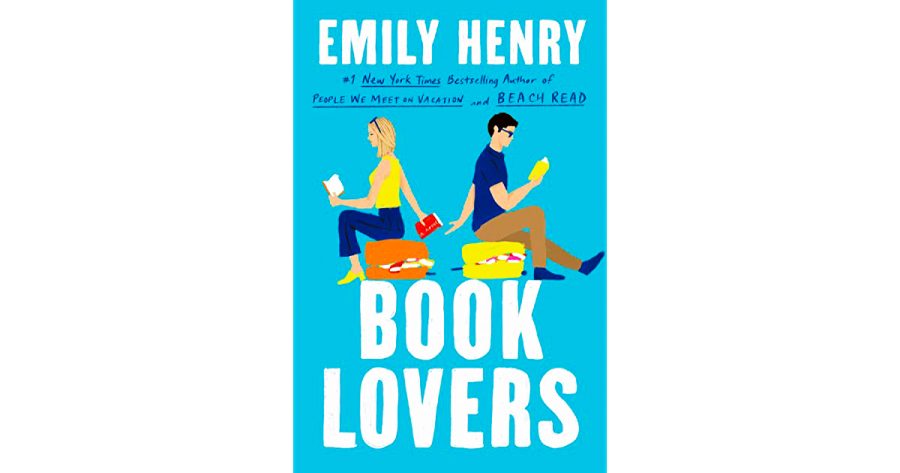For the third time in three years, Emily Henry has taken her rightful place on the romantic comedy throne. “Book Lovers,” released this past May, details the story of Charlie and Nora, literary rivals who end up in the same small town for a summer.
Nora Stephens, literary agent and self-proclaimed diehard city girl, finds herself in a tiny North Carolina town to spend some one-on-one time with her sister, Libby, before the birth of Libby’s third child. No one is more surprised than Nora when she runs into Charlie Lastra, a literary editor who has been her workplace adversary back in New York ever since a potential partnership went sour two years prior.
With Charlie back at home helping his mother’s failing bookstore and Nora working through her sister’s checklist to provide the perfect summer romance, sparks — and insults — begin to fly. Their will-they-won’t-they dynamic heats up as Nora prepares to head back to New York and Charlie begins to make his arrangements in North Carolina more permanent.
The best part of any Emily Henry romance is the banter between the characters, and “Book Lovers” is no exception. The back and forth between Charlie and Nora is sharp, memorable and entirely original — their first exchanges dissect the moral implications of Bigfoot-themed erotica.
Nora and Charlie start out as intellectual sparring partners, but I wouldn’t say that it’s fair to call this an enemies-to-lovers story. Their attraction to one another blossoms quickly, and neither makes a particularly resilient effort to hide it.
Henry plays with other romantic tropes in an interesting way by taking a self-aware approach. For example, soon after being dumped by several men who go on to find their swoonworthy small town love story, Nora has resigned herself to forever be the career-driven, big city girl a man breaks up with when he finds his true love – think Patrick Dempsey in “Sweet Home Alabama.”
Similarly, the goal of Nora and Libby’s trip to North Carolina is to role play a small town romance straight out of the pages of Libby’s favorite novel. The characters’ awareness of these recurring themes and their willingness to poke fun at the melodrama of it all make the clichés seem less, well, clichéd. Instead of rolling our eyes at the appearance of an overplayed plot point, readers can enjoy the ways Nora and Libby succeed and fail at checking off the goals on their list and watch Nora diverge from the formula set up for her by novels and movies of the past, breathing new life into her character archetype.
Without revealing too much about Charlie and Nora’s fate, one element of the story I have trouble getting behind is the lack of communication between the two. Nora and Charlie’s relationship is built on confiding in each other about their fears and struggles. They bond over their steadfast loyalty to their families in the face of hardships, and spend most of the novel sharing some of their deepest insecurities and doubts. It just doesn’t track that a pair so adept at communicating would fail to properly discuss their future for so long. That being said, putting off difficult conversations is a cornerstone of rom-com couples, and maybe that habit is realistic after all.
The novel challenges the idea that love requires sacrificing the things that you enjoy about your life, as well as the notion that our past relationships define our future ones. If you’re a sucker for a clever summer romance, pick up Emily Henry’s latest, “Book Lovers.”























































































































